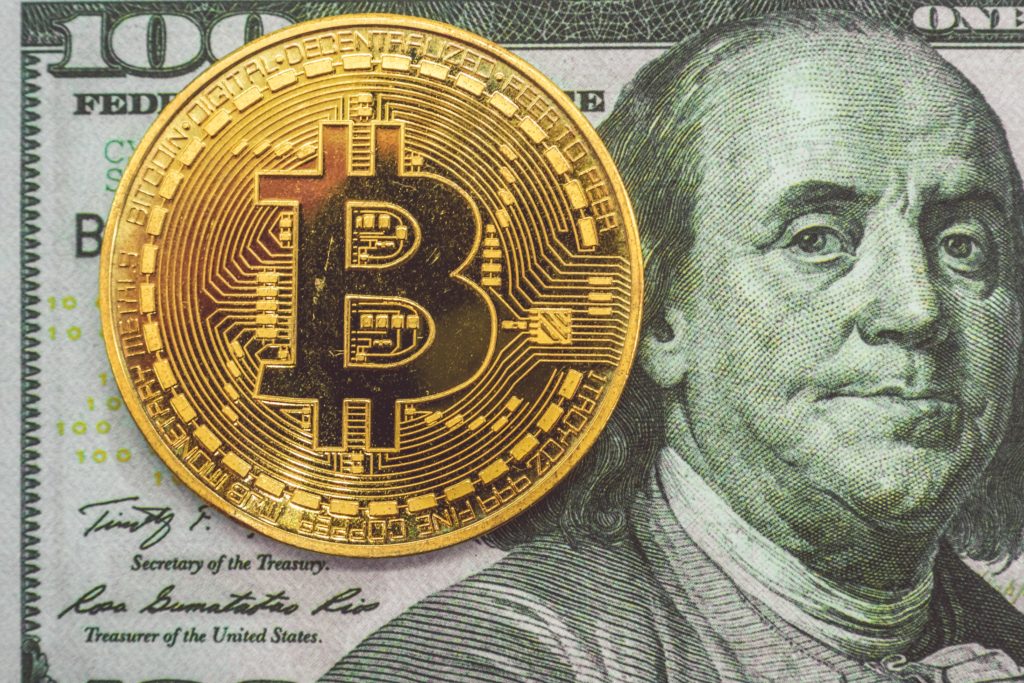The rapid rise in the price of bitcoin and other similar cryptocurrencies has attracted investors, financial companies, regulators, and the media. A lot of people are interested in using bitcoin as a side income, but it can be challenging to grasp the basics of bitcoin.

There’s a lot of technical jargon involved, especially when you’re trying to understand how the software works. A lot of cryptocurrencies are experimental open-source projects, and there is disagreement among developers, miners, and investors on how they should evolve. Cryptocurrencies have been hailed as everything from the future of currency to scams and Ponzi schemes.
Bitcoin 101
Cryptocurrencies are digital currencies that are secured through cryptography, the enciphering, and deciphering of messages in secret code or cipher. A lot of them rely on blockchain technology, which is a distributed ledger of all transactions that are decentralized and unable to be changed under most circumstances as long as nobody controls more than half of the computing power on the network
Unlike traditional currencies, they aren’t controlled by a central government or authority, although you can now access them from an ATM, via a Bitcoin ATM operator. For some coins, the supply of new coins is controlled by a process called mining, where computers compete against each other to secure the network by solving mathematical equations, collecting bitcoins as a reward if they are first to create a valid block. This is then broadcast to the network and added to the blockchain.
Other coins are pre-mined, where the mining occurs before the public launch of the coin. Pre-mined coins are sometimes viewed negatively, as they are often promoted to increase demand and push up the price, allowing developers to cash out.
Since many cryptocurrencies were created as open-source software, they continue to evolve as more developers implement solutions to address problems that come up. Some of the common issues are scalability and security.
Bitcoin is the best-known cryptocurrency. The original developer, Satoshi Nakamoto tried to create a peer-to-peer electronic cash system. Those who track the Bitcoin network and its early activity think that whoever Satoshi Nakamoto really is, he holds roughly 1 million bitcoin, worth around $18.6 billion based on recent prices. To add to the mystery of Nakamoto, it looks as though a minimal amount of this bitcoin has been moved or spent.
One of the big innovations of Bitcoin was making a system that didn’t rely on a third party to process electronic payments. Instead, it relied on the consensus of the nodes on the network. It created a currency where the supply couldn’t be altered by a central bank or government. This might not seem like a big deal in the US, but in countries like Zimbabwe or Venezuela that has been through hyper-inflation due to excessive money printing by corrupt governments, this is a bigger concern.
Beyond bitcoin, there are 27 other coins that have a market cap of $1 billion or more. These examples include Ether, Ripple, Litecoin, Dash, Monero, Zcash, and IOTA.
Each type of coin has varied features and purposes. Several cryptocurrencies were created by developers who were aiming to solve the shortcomings of some coins or provide additional features that aren’t present in other coins. For example, Bitcoin is not totally anonymous. Anyone can view the ledger, and the flow of funds can be traced to and from different Bitcoin addresses. However, there is no private information that links you to your Bitcoin address. Other coins have been developed in order to provide full anonymity.
Common Cryptocurrency Terms:
Here are a few of the basic, non-technical terms that you are likely to come across as you read about cryptocurrencies
Address. This is a bit like an email address. You can share your coin-specific address to allow someone to send coins to you. Unlike email, people can have several different addresses, and it is usually recommended that you generate a unique address for every transaction.
Altcoin. This is short for alternative coin and is commonly used to describe any cryptocurrency other than Bitcoin.
Blockchain. A cryptographically protected distributed ledger made up of blocks that contain the history of transactions. As the blockchain gets longer, it becomes much harder to alter old transactions.
Fork. A software fork happens when there is a change to the original program, which can result in a split of the original blockchain and the creation of a new coin. Bitcoin Cash and Ethereum Classic were both created from forks. There can be hard forks, soft forks, and accidental forks.
Hodl. This can be traced back to a misspelling in a forum posting. The term has since come to be used as a battle cry for early adopters of cryptocurrency who are holding into coins regardless of price volatility.
Initial Coin Offering (ICO). An ICO, also called a token sale, is a way of crowdfunding where a company offers a new coin in exchange for traditional currencies, like US dollars, or digital currency, like Bitcoin. Usually, the funds they receive are used to develop the new concept and the token they issued with be used to transact on their network once it has been launched. China and South Korea have both banned ICOs, and the SEC has said that they might consider the offer and sale of securities, depending on the circumstances of the offering.
Smart Contract. An agreement that is written in computer code and automatically executes when certain conditions have been met. Some networks, such as Ethereum, support smart contracts. Others don’t.
Wallet. A cryptocurrency wallet is used to store private and public keys. These are needed to send and receive coins. There are hardware, software, and paper wallets available. Hardware and paper wallets are usually thought to be more secure than software wallets, although there are pros and cons associated with each option. If you lose your private key, and cannot get access to your wallet through back-up methods, then you will never be able to recover your coins and they are removed from circulation.
Hey, I'm Andrew. I moved to Lisbon, Portugal from Canada. Follow my journey here.
I also happen to run a SAAS that helps marketers give their shared links superpowers. You can create a free account and start being more productive: Check out Linkalytics here.
I'm passionate about AI and using AI tools to help creators and marketers create better content, faster. Get the jump on AI and discover free AI tools every week.
Read my writings on Medium.
Got a marketing question? Need some direction? Book a call with me.

